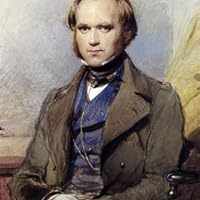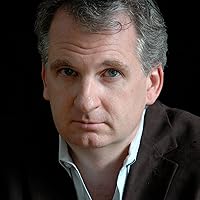Nazism Quotes
Quotes tagged as "nazism"
Showing 1-30 of 232

“[Said during a debate when his opponent asserted that atheism and belief in evolution lead to Nazism:]
Atheism by itself is, of course, not a moral position or a political one of any kind; it simply is the refusal to believe in a supernatural dimension. For you to say of Nazism that it was the implementation of the work of Charles Darwin is a filthy slander, undeserving of you and an insult to this audience. Darwin’s thought was not taught in Germany; Darwinism was so derided in Germany along with every other form of unbelief that all the great modern atheists, Darwin, Einstein and Freud were alike despised by the National Socialist regime.
Now, just to take the most notorious of the 20th century totalitarianisms – the most finished example, the most perfected one, the most ruthless and refined one: that of National Socialism, the one that fortunately allowed the escape of all these great atheists, thinkers and many others, to the United States, a country of separation of church and state, that gave them welcome – if it’s an atheistic regime, then how come that in the first chapter of Mein Kampf, that Hitler says that he’s doing God’s work and executing God’s will in destroying the Jewish people? How come the fuhrer oath that every officer of the Party and the Army had to take, making Hitler into a minor god, begins, “I swear in the name of almighty God, my loyalty to the Fuhrer?” How come that on the belt buckle of every Nazi soldier it says Gott mit uns, God on our side? How come that the first treaty made by the Nationalist Socialist dictatorship, the very first is with the Vatican? It’s exchanging political control of Germany for Catholic control of German education. How come that the church has celebrated the birthday of the Fuhrer every year, on that day until democracy put an end to this filthy, quasi-religious, superstitious, barbarous, reactionary system?
Again, this is not a difference of emphasis between us. To suggest that there’s something fascistic about me and about my beliefs is something I won't hear said and you shouldn't believe.”
―
Atheism by itself is, of course, not a moral position or a political one of any kind; it simply is the refusal to believe in a supernatural dimension. For you to say of Nazism that it was the implementation of the work of Charles Darwin is a filthy slander, undeserving of you and an insult to this audience. Darwin’s thought was not taught in Germany; Darwinism was so derided in Germany along with every other form of unbelief that all the great modern atheists, Darwin, Einstein and Freud were alike despised by the National Socialist regime.
Now, just to take the most notorious of the 20th century totalitarianisms – the most finished example, the most perfected one, the most ruthless and refined one: that of National Socialism, the one that fortunately allowed the escape of all these great atheists, thinkers and many others, to the United States, a country of separation of church and state, that gave them welcome – if it’s an atheistic regime, then how come that in the first chapter of Mein Kampf, that Hitler says that he’s doing God’s work and executing God’s will in destroying the Jewish people? How come the fuhrer oath that every officer of the Party and the Army had to take, making Hitler into a minor god, begins, “I swear in the name of almighty God, my loyalty to the Fuhrer?” How come that on the belt buckle of every Nazi soldier it says Gott mit uns, God on our side? How come that the first treaty made by the Nationalist Socialist dictatorship, the very first is with the Vatican? It’s exchanging political control of Germany for Catholic control of German education. How come that the church has celebrated the birthday of the Fuhrer every year, on that day until democracy put an end to this filthy, quasi-religious, superstitious, barbarous, reactionary system?
Again, this is not a difference of emphasis between us. To suggest that there’s something fascistic about me and about my beliefs is something I won't hear said and you shouldn't believe.”
―

“The ideal subject of totalitarian rule is not the convinced Nazi or the convinced Communist, but people for whom the distinction between fact and fiction (i.e., the reality of experience) and the distinction between true and false (i.e., the standards of thought) no longer exist.”
― The Origins of Totalitarianism
― The Origins of Totalitarianism

“They want to be the agents, not the victims, of history. They identify with God's power and believe they are godlike. That is their basic madness. They are overcome by some archtype; their egos have expanded psychotically so that they cannot tell where they begin and the godhead leaves off. It is not hubris, not pride; it is inflation of the ego to its ultimate — confusion between him who worships and that which is worshipped. Man has not eaten God; God has eaten man.”
― The Man in the High Castle
― The Man in the High Castle

“Darwinism by itself did not produce the Holocaust, but without Darwinism... neither Hitler nor his Nazi followers would have had the necessary scientific underpinnings to convince themselves and their collaborators that one of the worlds greatest atrocities was really morally praiseworthy.”
― From Darwin to Hitler: Evolutionary Ethics, Eugenics and Racism in Germany
― From Darwin to Hitler: Evolutionary Ethics, Eugenics and Racism in Germany

“But the one great shocking occasion, when tens or hundreds or thousands will join with you, never comes. That’s the difficulty. If the last and worst act of the whole regime had come immediately after the first and smallest, thousands, yes, millions would have been sufficiently shocked—if, let us say, the gassing of the Jews in ’43 had come immediately after the ‘German Firm’ stickers on the windows of non-Jewish shops in ’33. But of course this isn’t the way it happens. In between come all the hundreds of little steps, some of them imperceptible, each of them preparing you not to be shocked by the next. Step C is not so much worse than Step B, and, if you did not make a stand at Step B, why should you at Step C? And so on to Step D.
And one day, too late, your principles, if you were ever sensible of them, all rush in upon you. The burden of self-deception has grown too heavy, and some minor incident, in my case my little boy, hardly more than a baby, saying ‘Jewish swine,’ collapses it all at once, and you see that everything, everything, has changed and changed completely under your nose. The world you live in—your nation, your people—is not the world you were born in at all. The forms are all there, all untouched, all reassuring, the houses, the shops, the jobs, the mealtimes, the visits, the concerts, the cinema, the holidays. But the spirit, which you never noticed because you made the lifelong mistake of identifying it with the forms, is changed. Now you live in a world of hate and fear, and the people who hate and fear do not even know it themselves; when everyone is transformed, no one is transformed. Now you live in a system which rules without responsibility even to God. The system itself could not have intended this in the beginning, but in order to sustain itself it was compelled to go all the way.”
― They Thought They Were Free: The Germans 1933-45
And one day, too late, your principles, if you were ever sensible of them, all rush in upon you. The burden of self-deception has grown too heavy, and some minor incident, in my case my little boy, hardly more than a baby, saying ‘Jewish swine,’ collapses it all at once, and you see that everything, everything, has changed and changed completely under your nose. The world you live in—your nation, your people—is not the world you were born in at all. The forms are all there, all untouched, all reassuring, the houses, the shops, the jobs, the mealtimes, the visits, the concerts, the cinema, the holidays. But the spirit, which you never noticed because you made the lifelong mistake of identifying it with the forms, is changed. Now you live in a world of hate and fear, and the people who hate and fear do not even know it themselves; when everyone is transformed, no one is transformed. Now you live in a system which rules without responsibility even to God. The system itself could not have intended this in the beginning, but in order to sustain itself it was compelled to go all the way.”
― They Thought They Were Free: The Germans 1933-45

“Hitler lied shamelessly about himself and about his enemies. He convinced millions of men and women that he cared for them deeply when, in fact, he would have willingly sacrificed them all. His murderous ambition, avowed racism, and utter immorality were given the thinnest mask, and yet millions of Germans were drawn to Hitler precisely because he seemed authentic. They screamed, “Sieg Heil” with happiness in their hearts, because they thought they were creating a better world.”
― Fascism: A Warning
― Fascism: A Warning

“Like the Nazis, the cadres of jihad have a death wish that sets the seal on their nihilism. The goal of a world run by an oligarchy in possession of Teutonic genes, who may kill or enslave other 'races' according to need, is not more unrealizable than the idea that a single state, let alone the globe itself, could be governed according to the dictates of an allegedly holy book. This mad scheme begins by denying itself the talents (and the rights) of half the population, views with superstitious horror the charging of interest, and invokes the right of Muslims to subject nonbelievers to special taxes and confiscations. Not even Afghanistan or Somalia, scenes of the furthest advances yet made by pro-caliphate forces, could be governed for long in this way without setting new standards for beggary and decline.”
― The Enemy
― The Enemy

“Man and fascism cannot co-exist. If fascism conquers, man will cease to exist and there will remain only man-like creatures that have undergone an internal transformation. But if man, man who is endowed with reason and kindness, should conquer, then Fascism must perish, and those who have submitted to it will once again become people.”
― Life and Fate
― Life and Fate

“No other German writer of comparable stature has been a more extreme critic of German nationalism than Nietzsche.”
― On the Genealogy of Morals / Ecce Homo
― On the Genealogy of Morals / Ecce Homo

“Hitherto, the Palestinians had been relatively immune to this Allahu Akhbar style. I thought this was a hugely retrograde development. I said as much to Edward. To reprint Nazi propaganda and to make a theocratic claim to Spanish soil was to be a protofascist and a supporter of 'Caliphate' imperialism: it had nothing at all to do with the mistreatment of the Palestinians. Once again, he did not exactly disagree. But he was anxious to emphasize that the Israelis had often encouraged Hamas as a foil against Fatah and the PLO. This I had known since seeing the burning out of leftist Palestinians by Muslim mobs in Gaza as early as 1981. Yet once again, it seemed Edward could only condemn Islamism if it could somehow be blamed on either Israel or the United States or the West, and not as a thing in itself. He sometimes employed the same sort of knight's move when discussing other Arabist movements, excoriating Saddam Hussein's Ba'ath Party, for example, mainly because it had once enjoyed the support of the CIA. But when Saddam was really being attacked, as in the case of his use of chemical weapons on noncombatants at Halabja, Edward gave second-hand currency to the falsified story that it had 'really' been the Iranians who had done it. If that didn't work, well, hadn't the United States sold Saddam the weaponry in the first place? Finally, and always—and this question wasn't automatically discredited by being a change of subject—what about Israel's unwanted and ugly rule over more and more millions of non-Jews?
I evolved a test for this mentality, which I applied to more people than Edward. What would, or did, the relevant person say when the United States intervened to stop the massacres and dispossessions in Bosnia-Herzegovina and Kosovo? Here were two majority-Muslim territories and populations being vilely mistreated by Orthodox and Catholic Christians. There was no oil in the region. The state interests of Israel were not involved (indeed, Ariel Sharon publicly opposed the return of the Kosovar refugees to their homes on the grounds that it set an alarming—I want to say 'unsettling'—precedent). The usual national-security 'hawks,' like Henry Kissinger, were also strongly opposed to the mission. One evening at Edward's apartment, with the other guest being the mercurial, courageous Azmi Bishara, then one of the more distinguished Arab members of the Israeli parliament, I was finally able to leave the arguing to someone else. Bishara [...] was quite shocked that Edward would not lend public support to Clinton for finally doing the right thing in the Balkans. Why was he being so stubborn? I had begun by then—belatedly you may say—to guess. Rather like our then-friend Noam Chomsky, Edward in the final instance believed that if the United States was doing something, then that thing could not by definition be a moral or ethical action.”
― Hitch 22: A Memoir
I evolved a test for this mentality, which I applied to more people than Edward. What would, or did, the relevant person say when the United States intervened to stop the massacres and dispossessions in Bosnia-Herzegovina and Kosovo? Here were two majority-Muslim territories and populations being vilely mistreated by Orthodox and Catholic Christians. There was no oil in the region. The state interests of Israel were not involved (indeed, Ariel Sharon publicly opposed the return of the Kosovar refugees to their homes on the grounds that it set an alarming—I want to say 'unsettling'—precedent). The usual national-security 'hawks,' like Henry Kissinger, were also strongly opposed to the mission. One evening at Edward's apartment, with the other guest being the mercurial, courageous Azmi Bishara, then one of the more distinguished Arab members of the Israeli parliament, I was finally able to leave the arguing to someone else. Bishara [...] was quite shocked that Edward would not lend public support to Clinton for finally doing the right thing in the Balkans. Why was he being so stubborn? I had begun by then—belatedly you may say—to guess. Rather like our then-friend Noam Chomsky, Edward in the final instance believed that if the United States was doing something, then that thing could not by definition be a moral or ethical action.”
― Hitch 22: A Memoir

“I wanted to tell him a story, but I didn't. It's a story about a Jew riding in a streetcar, in Germany during the Third Reich, reading Goebbels' paper, the Volkische Beobachter. A non-Jewish acquaintance sits down next to him and says, "Why do you read the Beobachter?" "Look," says the Jew, "I work in a factory all day. When I get home, my wife nags me, the children are sick, and there's no money for food. What should I do on my way home, read the Jewish newspaper? Pogrom in Romania' 'Jews Murdered in Poland.' 'New Laws against Jews.' No, sir, a half-hour a day, on the streetcar, I read the Beobachter. 'Jews the World Capitalists,' 'Jews Control Russia,' 'Jews Rule in England.' That's me they're talking about. A half-hour a day I'm somebody. Leave me alone, friend.”
―
―

“Am I racially kin to this man? Baynes wondered. So closely so that for all intents and purposes it is the same? Then it is in me, too, the psychotic streak. A psychotic world we live in. The madmen are in power. How long have we known this? Faced this? And—how many of us do know it?”
― The Man in the High Castle
― The Man in the High Castle

“Racists are snakes. Their minds are closed but their mouths are wide open, full of venom, ready to sting and destroy people around them.”
―
―

“So it is not an accident that the Nazi lads vent a particular fury against (Einstein). He does truly stand for what they most dislike, the opposite of the blond beast intellectualist, individualist, supernationalist, pacifist, inky, plump... How should they know the glory of the free-ranging intellect and soft objective sympathy to whom money and violence, drink and blood and pomp, mean absolutely nothing?”
―
―

“I could show fight on natural selection having done and doing more for the progress of civilization than you seem inclined to admit. Remember what risk the nations of Europe ran, not so many centuries ago of being overwhelmed by the Turks, and how ridiculous such an idea now is! The more civilised so-called Caucasian races have beaten the Turkish hollow in the struggle for existence. Looking to the world at no very distant date, what an endless number of the lower races will have been eliminated by the higher civilized races throughout the world.”
―
―

“It is much easier to believe lies than the truth."
"Why?" asked Janna.
"Because lies are manufactured to satisfy the emotions. A mother would rather believe her pretty girl lazy than accept the fact that she's a dumb cluck. Germans would rather believe they were stabbed in the back than that they lost a fair fight. And anyone would rather blame someone else for his misfortunes. The truth is hard. Don't fool with it unless you realize that.”
― The Borrowed House
"Why?" asked Janna.
"Because lies are manufactured to satisfy the emotions. A mother would rather believe her pretty girl lazy than accept the fact that she's a dumb cluck. Germans would rather believe they were stabbed in the back than that they lost a fair fight. And anyone would rather blame someone else for his misfortunes. The truth is hard. Don't fool with it unless you realize that.”
― The Borrowed House

“There was nothing conservative about Adolf Hitler. Hitler was an artist and a revolutionary at heart. He wanted to completely upend and remake German society.”
―
―

“There is no rationality in the Nazi hatred: it is hate that is not in us, it is outside of man.. We cannot understand it, but we must understand from where it springs, and we must be on our guard. If understanding is impossible, knowing is imperative, because what happened could happen again. Consciences can be seduced and obscured again - even our consciences. For this reason, it is everyone duty to reflect on what happened. Everybody must know, or remember, that when Hitler and Mussolini spoke in public, they were believed, applauded, admired, adored like gods. They were "charismatic leaders" ; they possessed a secret power of seduction that did not proceed from the soundness of things they said but from the suggestive way in which they said them, from their eloquence, from their histrionic art, perhaps instinctive, perhaps patiently learned and practised. The ideas they proclaimed were not always the same and were, in general, aberrant or silly or cruel. And yet they were acclaimed with hosannas and followed to the death by millions of the faithful.”
― If This Is a Man • The Truce
― If This Is a Man • The Truce

“Sin embargo, conocí a muchos internados que supieron ser fieles a su dignidad humana hasta el mismo fin. Los nazis lograron degradarlos físicamente, pero no fueron capaces de rebajarlos moralmente.
Gracias a estos pocos, no he perdido totalmente mi fe en la humanidad. Si en la misma jungla de Birkenau no todos fueron necesariamente inhumanos con sus hermanos hombres, indudablemente hay todavía esperanzas.
Esta esperanza es la que me hace vivir.”
―
Gracias a estos pocos, no he perdido totalmente mi fe en la humanidad. Si en la misma jungla de Birkenau no todos fueron necesariamente inhumanos con sus hermanos hombres, indudablemente hay todavía esperanzas.
Esta esperanza es la que me hace vivir.”
―

“Now we will live!” This is what the hungry little boy liked to say, as he toddled along the quiet roadside, or through the empty fields. But the food that he saw was only in his imagination. The wheat had all been taken away, in a heartless campaign of requisitions that began Europe’s era of mass killing. It was 1933, and Joseph Stalin was deliberately starving Soviet Ukraine. The little boy died, as did more than three million other people. “I will meet her,” said a young Soviet man of his wife, “under the ground.” He was right; he was shot after she was, and they were buried among the seven hundred thousand victims of Stalin’s Great Terror of 1937 and 1938. “They asked for my wedding ring, which I….” The Polish officer broke off his diary just before he was executed by the Soviet secret police in 1940. He was one of about two hundred thousand Polish citizens shot by the Soviets or the Germans at the beginning of the Second World War, while Nazi Germany and the Soviet Union jointly occupied his country. Late in 1941, an eleven-year-old Russian girl in Leningrad finished her own humble diary: “Only Tania is left.” Adolf Hitler had betrayed Stalin, her city was under siege by the Germans, and her family were among the four million Soviet citizens the Germans starved to death. The following summer, a twelve-year-old Jewish girl in Belarus wrote a last letter to her father: “I am saying good-bye to you before I die. I am so afraid of this death because they throw small children into the mass graves alive.” She was among the more than five million Jews gassed or shot by the Germans.”
― Bloodlands: Europe Between Hitler and Stalin
― Bloodlands: Europe Between Hitler and Stalin

“What people still do not like to admit is that there were two crimes in the form of one. Just as the destruction of Jewry was the necessary condition for the rise and expansion of Nazism, so the ethnic cleansing of Germans was a precondition for the Stalinization of Poland. I first noticed this point when reading an essay by the late Ernest Gellner, who at the end of the war had warned Eastern Europeans that collective punishment of Germans would put them under Stalin's tutelage indefinitely. They would always feel the guilty need for an ally against potential German revenge.”
― Hitch 22: A Memoir
― Hitch 22: A Memoir

“Tenemos el prejuicio de que las grandes catástrofes de los pueblos sólo son posibles en medio de un apocalíptico desorden. En nuestro tiempo las cosas suceden de una manera mucho más sencilla, con una simplicidad y una facilidad aterradora.”
― La agonía de Francia
― La agonía de Francia

“Just because something is normal, does not make it morally justified. Case in point: Antisemitism in Nazi Germany.”
―
―

“Goebbels was unbelievably ignorant of the world outside Germany. He appeared to know absolutely nothing of the history, the literature and the people of any foreign land. He understood no modern foreign language. His ideas of America, for instance, were childish. This was a weakness shared by all the Nazi bigwigs, beginning with Hitler, and it began to occur to me that it might have ominous consequences for the Third Reich, and unfortunately, for much of the rest of the world. There is nothing more dangerous in the shaping of foreign policy than ignorance - of foreign lands and people.”
― The Nightmare Years: 1930-40
― The Nightmare Years: 1930-40

“The darker side of Nietzsche’s ideas was incorporated into the Nazi belief system. Part of the link was straightforward: some things Nietzsche said were pure Nazi doctrine. His comments that ‘The extinction of many types of people is just as desirable as any form of reproduction’ and that ‘the tendency must be towards the rendering extinct of the wretched, the deformed, the degenerate’ could come from any work on racial hygiene.
Nietzsche’s central contribution was not these explicitly Social Darwinist views, but his rejection of the Judeo-Christian morality of compassion for the weak. Self-creation required hardness towards oneself: a strong will imposing coherence on conflicting impulses. It also requires hardness on others. Conflicts between the self-creative projects of different people made inevitable the attempt to dominate others. The whole of life was a struggle in which victory went to the brave and to the strong-willed. Noble human qualities, linked with the will to power, were brought out in combat but atrophied in peace. Compassion was weakness, cowardice and self-deception. The Judeo-Christian emphasis on it was poison. In drawing these consequences from his beliefs about the death of God and from Social Darwinism, Nietzsche provided the part of the Nazi belief system which ‘justified’ the cruel steps they took to implement their other beliefs.”
― Humanity: A Moral History of the Twentieth Century
Nietzsche’s central contribution was not these explicitly Social Darwinist views, but his rejection of the Judeo-Christian morality of compassion for the weak. Self-creation required hardness towards oneself: a strong will imposing coherence on conflicting impulses. It also requires hardness on others. Conflicts between the self-creative projects of different people made inevitable the attempt to dominate others. The whole of life was a struggle in which victory went to the brave and to the strong-willed. Noble human qualities, linked with the will to power, were brought out in combat but atrophied in peace. Compassion was weakness, cowardice and self-deception. The Judeo-Christian emphasis on it was poison. In drawing these consequences from his beliefs about the death of God and from Social Darwinism, Nietzsche provided the part of the Nazi belief system which ‘justified’ the cruel steps they took to implement their other beliefs.”
― Humanity: A Moral History of the Twentieth Century

“A Nazi initiation into the upper reaches of the SS was to gouge out the eye of a pet cat after feeding the cat and cuddling it for a month. This exercise was designed to eliminate all traces of pity-poison and mold a full Übermensch. There is a very sound magical postulate involved: the practitioner achieves superhuman status by performing some atrocious, revolting, subhuman act. In Morocco, magic men gain power by eating their own excrement.
But dig out Ruski’s eyes? Stack bribes to the radioactive sky. What does it profit a man? I could not occupy a body that could dig out Ruski’s eyes. So WHO gained the whole world? I didn’t. Any bargain involving exchange of qualitative values like animal love for quantitative advantage is not only dishonorable, as wrong as a man can get, it is also foolish. Because YOU get nothing. You have sold your YOU.”
― The Cat Inside
But dig out Ruski’s eyes? Stack bribes to the radioactive sky. What does it profit a man? I could not occupy a body that could dig out Ruski’s eyes. So WHO gained the whole world? I didn’t. Any bargain involving exchange of qualitative values like animal love for quantitative advantage is not only dishonorable, as wrong as a man can get, it is also foolish. Because YOU get nothing. You have sold your YOU.”
― The Cat Inside

“Riassumendo vorrei in realtà dire: la barbarie nazista fa sorgere in noi un'identica barbarie che procederebbe con gli stessi metodi, se noi avessimo la possibilità di agire oggi come vorremmo. Dobbiamo respingere interiormente questa inciviltà, non possiamo coltivare in noi quell'odio perché altrimenti il mondo non uscirà di un solo passo dalla melma.”
― Diario 1941-1943
― Diario 1941-1943

“Se anche non rimanesse che un solo tedesco decente, quest'unico tedesco meriterebbe di essere difeso contro quella banda di barbari, e grazie a lui non si avrebbe il diritto di riversare il proprio odio su un popolo intero. […] L'odio indiscriminato è una malattia dell'anima, odiare non è nel mio carattere.”
― Diario 1941-1943
― Diario 1941-1943

“This was a particularly spectacular example of the German campaign to gather forced labor in the East, which had begun with the Poles of the General Government, and spread to Ukraine before reaching this bloody climax in Belarus. By the end of the war, some eight million foreigners from the East, most of them Slavs, were working in the Reich. It was a rather perverse result, even by the standards of Nazi racism: German men went abroad and killed millions of "subhumans," only to import millions of other "subhumans" to do the work in Germany that the German men would have been doing themselves - had they not been abroad killing "subhumans." The net effect, setting aside the mass killing abroad, was that Germany became more of a Slavic land than it had ever been in history. (The perversity would reach its extreme in the first months of 1945, when surviving Jews were sent to labor camps in Germany itself. Having killed 5.4 million Jews as racial enemies, the Germans then brought Jewish survivors home to do the work that the killers might have been doing themselves had they not been abroad killing.)
pp. 244-246”
― Bloodlands: Europe Between Hitler and Stalin
pp. 244-246”
― Bloodlands: Europe Between Hitler and Stalin

“In October 1941, Mahilue became teh first substantial city in occupied Soviet Belarus where almost all Jews were killed. A German (Austrian) policeman wrote to his wife of his feelings and experiences shooting the city's Jews in the first days of the month. 'During the first try, my hand trembled a bit as I shot, but one gets used to it. By the tenth try I aimed calmly and shot surely at the many women, children, and infants. I kept in mind that I have two infants at home, whom these hordes would treat just the same, if not ten times worse. The death that we gave them was a beautiful quick death, compared to the hellish torments of thousands and thousands in the jails of the GPU. Infants flew in great arcs through the air, and we shot them to pieces in flight, before their bodies fell into the pit and into the water.'
pp. 205-206”
― Bloodlands: Europe Between Hitler and Stalin
pp. 205-206”
― Bloodlands: Europe Between Hitler and Stalin
All Quotes
|
My Quotes
|
Add A Quote
Browse By Tag
- Love Quotes 97k
- Life Quotes 75.5k
- Inspirational Quotes 72.5k
- Humor Quotes 43.5k
- Philosophy Quotes 29.5k
- Inspirational Quotes Quotes 27k
- God Quotes 26k
- Truth Quotes 23.5k
- Wisdom Quotes 23.5k
- Romance Quotes 23k
- Poetry Quotes 22k
- Death Quotes 20k
- Happiness Quotes 18.5k
- Life Lessons Quotes 18.5k
- Hope Quotes 18k
- Faith Quotes 18k
- Quotes Quotes 16.5k
- Inspiration Quotes 16.5k
- Spirituality Quotes 15k
- Religion Quotes 15k
- Motivational Quotes 15k
- Writing Quotes 14.5k
- Relationships Quotes 14.5k
- Life Quotes Quotes 14k
- Love Quotes Quotes 13.5k
- Success Quotes 13.5k
- Time Quotes 12.5k
- Motivation Quotes 12k
- Science Quotes 11.5k
- Knowledge Quotes 11k

